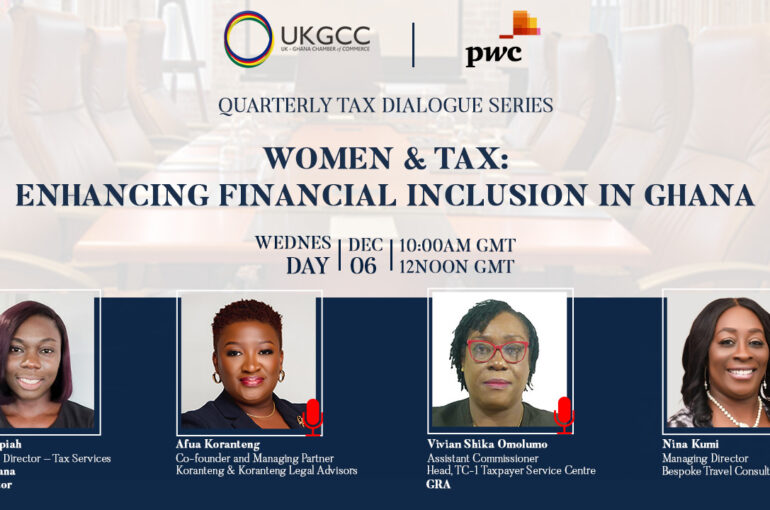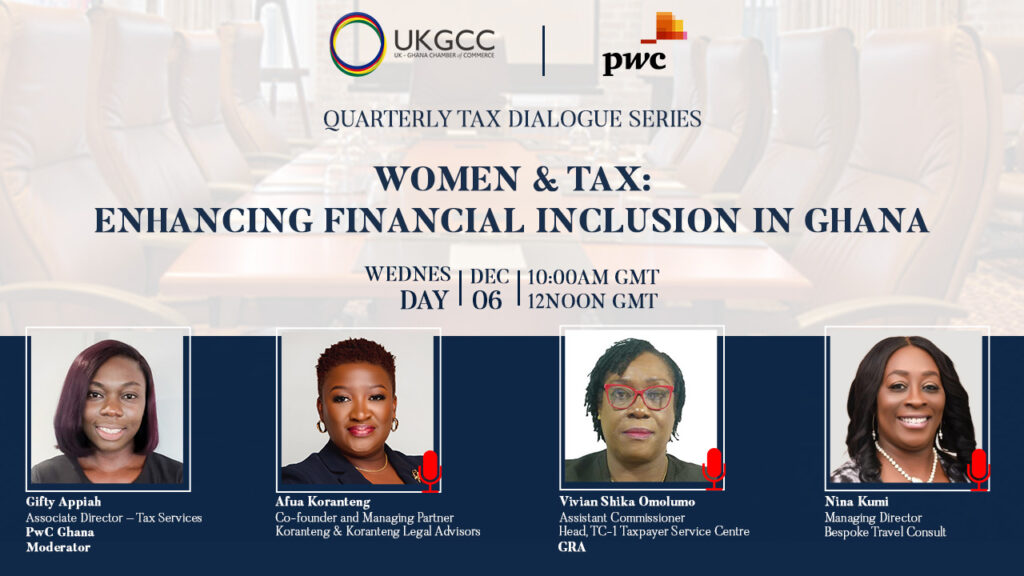Defaulting on tax payments: GRA Assistant Commissioner encourages business owners to request extensions to avoid penalties
Defaulting on tax payments: GRA Assistant Commissioner encourages business owners to request extensions to avoid penalties


Vivian Shika Omolumo, Assistant Commissioner and the Head of Tema Community 1 Taxpayer Service Centre of the Ghana Revenue Authority (GRA), has encouraged business owners with cash flow challenges to request an extension from the GRA to grant them ample time to recover assets from defaulting clients, pay their taxes, and avoid penalties.
Where the taxpayer has filed by due date but has cash flow challenges, the law requires such a taxpayer to apply to the Commissioner General through the Taxpayer Service Centres (TSCs), which is their assigned office, stating reasons for the extension of time to pay tax under the tax law.
The TSC determines the merits or otherwise of the said application and proceeds to either grant the extension for a limited period of up to 4 months, reject the application, or escalate to the higher authority for a longer period.
Speaking during a UK-Ghana Chamber of Commerce (UKGCC) and PwC Ghana webinar on “Women and Tax: Enhancing Financial Inclusion in Ghana,” Madam Omolumo further remarked that, “Internally we have policies where the TSCs give up to a maximum of four months extension which can be spread out. We have other levels of approvals, some six, up to even the Commissioner General who has 12 months. So, when they apply, before due date or by due date, it gives them leeway to be able to pursue the monies from the defaulting clients and then by the time the month is up, they come in and pay”.
However, if cash flow is still a challenge after the extension has been granted, taxpayers can still approach the TSCs for an extension, at which point the issue is escalated.
Madam Omolumo bemoaned that most taxpayers, despite the education, still rush to file their taxes but fail to pay by due date. Because they fail to engage with the GRA, the Authority is then compelled to penalise them in a bid to recover the amounts for government to enable it carry out its developmental agenda.
She urged taxpayers to engage with the GRA even if they have an issue with filing their taxes and request an extension.
“The law requires that whatsoever invoices have been issued for any transaction, they are to file returns in terms of these transactions and then pay the taxes accordingly. But the law again has a provision that if you have a challenge with even filing, you must apply to the Commissioner General by due date, and state reasons why you are not able to file and ask for an extension”.
The Challenge of Taxing the Informal Sector
Most women-owned businesses are found in the informal sector (micro, small, and medium-scale enterprises), which constitute about 70% of the taxpaying public. However, revenue from the informal sector only constitutes about 5% of the total revenue GRA mobilises on an annual basis.
Nina Kumi, Managing Director of Bespoke Travel Consult, opined that some businesses in the informal sector fail to comply with tax laws because they know they can get away with it, without any repercussions. As a result, they fail to formalise their businesses, operating out of the tax net.
She called on the GRA to intensify tax education and collaboration with various stakeholders in the informal sector.
For her part, Afua Koranteng entreated the GRA to simplify the initial registration of businesses with the GRA after incorporation, especially regarding the initial tax assessment, which could be restrictive when the business was yet to start operations. She added that GRA should also adopt simpler methods for registering businesses in the informal sector to enable them comply with the law.
She also urged government and the GRA to educate women business owners, using other women business owners as facilitators.
Addressing the ongoing measures to improve tax revenue mobilisation in the informal sector, Madam Omolumo disclosed the use of the USSD code (*222#) to enhance tax revenue collection, and tax education in selected local dialects to improve education and engagement.
She, however, admitted that “Education for self-assessment has not gone down well. It behooves GRA to ensure that we educate the people, particularly the SMEs”.
She also remarked, “We need to scale up efforts to educate the informal sector” and outlined possible approaches such as simplifying tax laws, changing outreach times from morning to evening, and using theatre performances to increase tax education and enhance compliance.
Women and Tax: Are Women at a Disadvantage?
Afua Koranteng remarked, “I think the tax laws are not gender-based and I do not think that they should become so”.
She opined that it should be an issue of sector-specific tax exemptions, and then women being supported with regard to their access to finance”.
This financial support could include the government allowing certain institutions to provide more financial assistance to women-owned businesses to enable them become independent and run their businesses efficiently.
Final Words
Madam Omolumo emphasised that “For a country to develop, taxation is a sacrifice everyone must be prepared to make”, while Nina Kumi urged taxpayers to be tax compliant and grow their businesses. Afua Koranteng urged women business owners to get assistance to keep them tax compliant, and advised them to “help women in the younger generation to also come up”, especially in Science, Technology, Engineering and Mathematics (STEM) areas, and do things that will help promote women businesses.
The webinar also discussed related issues such as tax assessments, existing sector-specific tax exemptions, payment of corporate income tax, and women in tax administration.
Gifty Appiah, an Associate Director at PwC Ghana, moderated the webinar, the fourth in UKGCC/PwC Ghana’s Quarterly Tax Dialogue Series 2023.



